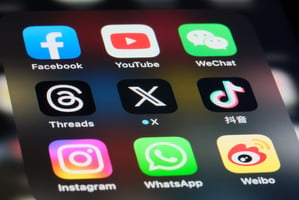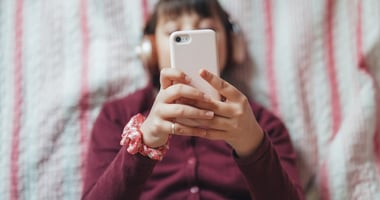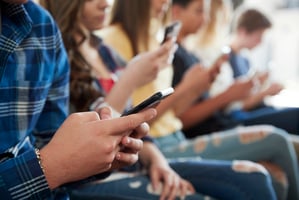Americans Have Mixed Feelings About Social Media, APA Poll Finds

A third of Americans reported that social media does more harm than good to their mental health and more than 40% said that social media has hurt society at large and that it has damaged political discourse, according to the results of an APA poll released today.
At the same time, most respondents reported feeling positive about their own use of social media. Eighty percent of social media users said they felt interested while using social media, 72% felt connected, and 72% said they felt happy. In contrast, 26% said social media made them feel helpless, and 22% said it made them feel jealous.
The findings are from APA’s Healthy Minds Monthly, a poll conducted by Morning Consult. The poll—which asked respondents about their mental health and social media use—was fielded online from January 19 to 20, among a nationally representative sample of 2,210 adults. Data were weighted to approximate a target sample of adults based on gender, educational attainment, age, race, and region.
The results reflect ambivalence about a now ubiquitous phenomenon. “Twenty-five years into what almost feels like a giant psychological experiment, most Americans are interacting with social media daily, and many are concerned about its effects on mental health and society,” APA President Vivian Pender, M.D., said in a media release.
Additional findings from the poll include the following:
- Most adults rated their mental health as excellent (27%) or good (46%).
- Moms were more than twice as likely as dads to rate their mental health as fair or poor (31% vs. 15%), while dads are far more likely than moms to rate their mental health as excellent (40% vs. 18%).
- 31% of adults said social media has helped their relationships with family and friends, but 44% said it has hurt society at large, 38% said it has damaged civil discourse, and 42% said it has harmed political discourse. Adults who do not use social media were more likely than social media users to say social media has harmed society at large (59%), political discourse (56%), and civil discourse (57%).
- 80% of adults used social media during the COVID-19 pandemic to connect with family and friends, and 76% used social media for entertainment.
- 23% of adults used social media to find mental health resources during the pandemic.
- Although 67% of adults said they were confident in their knowledge of how to help a loved one who indicated mental health struggles on social media, only 22% of adults were very confident they would know what to do.
“We know that social media can be very harmful for some individuals,” said APA CEO and Medical Director Saul Levin, M.D., M.P.A. “It has the effect of turning up the volume on conversations and connecting people in ways that can have a negative impact. That said, these poll results seem to indicate that many Americans are finding an ability to use social media in a way that feels harmless if not helpful to their lives.”
For more information, see the Psychiatric News special report “Be Prepared to Address Technological Addictions in Psychiatric Practice.”
(Image: iStock/PeopleImages)
Don't miss out! To learn about newly posted articles in Psychiatric News, please sign up here.






